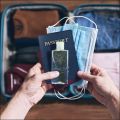How Sleep Impacts Muscle Recovery and Injury Prevention
There is plenty of research to show that sleep promotes athletic performance, enabling players to put forth a maximum effort and bounce back in time for the next game. This is most pronounced among teenage athletes; for example, one study shows that teen athletes who get less than eight hours of sleep at night are almost twice as likely to be injured as those who get eight hours plus. Another study of collegiate tennis players shows that getting 10 or more hours of sleep each night can improve speed, hitting accuracy, and beyond.
What makes sleep such an important component in athletic recovery? Physical therapist and owner of Next Level Physio, Jerry Yoo, explains that “When we sleep, hormones like HGH and testosterone (in males AND females) are secreted by the pituitary gland to promote muscle recovery. When our sleep is interrupted, especially non-REM sleep, we shunt the optimized benefit from sleep.”
These hormones regulate tissue regeneration within the body. Additionally, sleep decreases the amount of oxygen the body needs to function at a peak level, which is invaluable for athletes who are straining to catch a breath. And, sleep allows the body to digest food with less energy expenditure, which means the body can channel that energy to building proteins and transporting the fatty acids needed for muscle recovery.
One of the ironies here is that sleep is necessary for bolstering athletic performance, and yet an increased training load can also make it more difficult for athletes to sleep. In other words, athletes who try to step up their training regimens may find that they are sleeping less, during a time when their body really requires additional hours of rest. One explanation is that, as athletes try to increase their workloads, their body releases stress hormones to try to cope with the additional strain. These stress hormones can have the side effect of restlessness and insomnia.
Why Are Younger Athletes More At Risk?
It’s worth noting that sleep is vital for athletes at any age, but it’s especially crucial for adolescent and college-aged athletes as they seek to minimize their risk of injury. Part of this is simply that student athletes already experience a lot of strain as they seek to balance studying, training, socialization, work, and so on.
There is also scientific research showing that sleep deprivation is linked with injury in adolescent athletes. A big part of this has to do with the fact that adolescent athletes do not yet have fully-developed bodies; more than adults, teen and college-age athletes need those growth hormones to build their muscle and tissue, particularly when their existing tissue is being put through the wringer during games and at practice. Sufficient sleep is imperative for keeping developing bodies strong.
Articles and publications of other companies:
- +1 (201) 746-9966
- 123 Broadway
- gonextlevelphysio.com/







